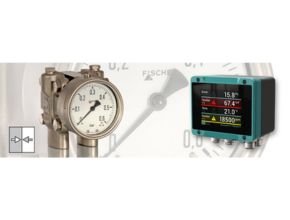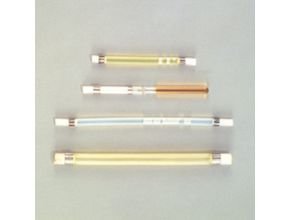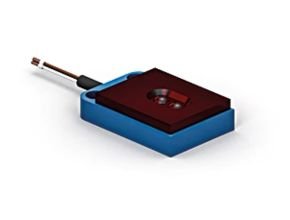Description Of Differential Pressure
FISCHER Differential Pressure is a differential pressure gauge designed for high precision applications in a variety of industries.

It is capable of detecting the pressure difference between two points, providing accurate and reliable data to monitor, control or protect systems. With a durable design and a variety of configurations, they are ideal for use in industrial environments that demand durability and optimal performance.
Feature of FISCHER – Differential Pressure
- High Accuracy: Provides high-precision measurement results, ideal for applications requiring sensitive pressure control.
- Durable Design: Made from quality materials such as stainless steel, ensuring resistance to corrosion, high pressure, and extreme temperatures.
- Wide Measurement Range: Supports a wide range of differential pressure ranges for light to heavy applications.
- Various Output Types: Can be equipped with analog (4-20 mA) or digital (Modbus, Profibus) outputs for easy integration with control systems.
- Installation Flexibility: Compatible with a variety of process connections such as thread, flange, or special fittings, facilitating installation in various types of systems.
- Strong Sealing: Ensures no leaks in the system, even in applications with high pressure or aggressive media.
- Display Options: Equipped with the option of a digital display for direct reading or a mechanical display for simple applications.
- Extreme Environment Resistant: With IP65 or higher certification, the device is suitable for harsh environments, such as outdoor areas or locations with high dust and humidity.
Application of FISCHER – Differential Pressure
FISCHER Differential Pressure is used in a variety of industries to monitor and control differential pressure, including:
- HVAC (Heating, Ventilation, and Air Conditioning): For monitoring air filters, ventilation control, and airflow measurement.
- Water and Sewage Treatment: Measuring pressure differences in filter membranes or tanks.
- Oil and Gas Industry: To monitor pressure differentials in pipes, tanks, and process systems.
- Energy Industry: Used on boilers, turbines, and power generation systems to ensure efficient operation.
- Pharmaceutical and Chemical Industry: Differential pressure control in production processes that require high precision.
- Pulp and Paper Industry: Measuring differential pressure in raw material processing.
- Process Automation System: An integral part of the pressure control system to improve operational efficiency.
Specification of FISCHER – Differential Pressure
- Measurement Range: From 0-25 Pa to 0-25 bar (depending on model).
- Accuracy: Up to ±0.5% of Full Scale (FS).
- Housing Material: Stainless steel, anodized aluminum, or high-strength plastic material.
- Diaphragm Material: Stainless steel 316L, PTFE, or Hastelloy for applications with aggressive media.
- Process Connections: Threaded (BSP, NPT), Flanged (DIN, ANSI, JIS), or custom fitting.
- Operating Temperature: Media: -20°C to +120°C (depending on model). Environment: -40°C to +85°C.
- Certifications: ATEX for hazardous areas, CE, and RoHS.
- Output: Analog: 4-20 mA, 0-10 V. Digital: Modbus RTU, Profibus, or HART.
- Environmental Protection: IP65, IP67, or IP68 (optional).
Display: LCD, LED, or mechanical display.
Read More Articles :




